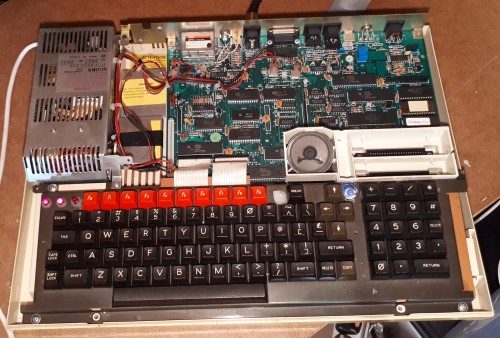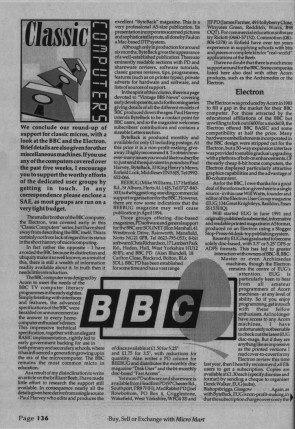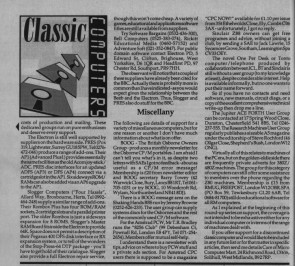Introduction
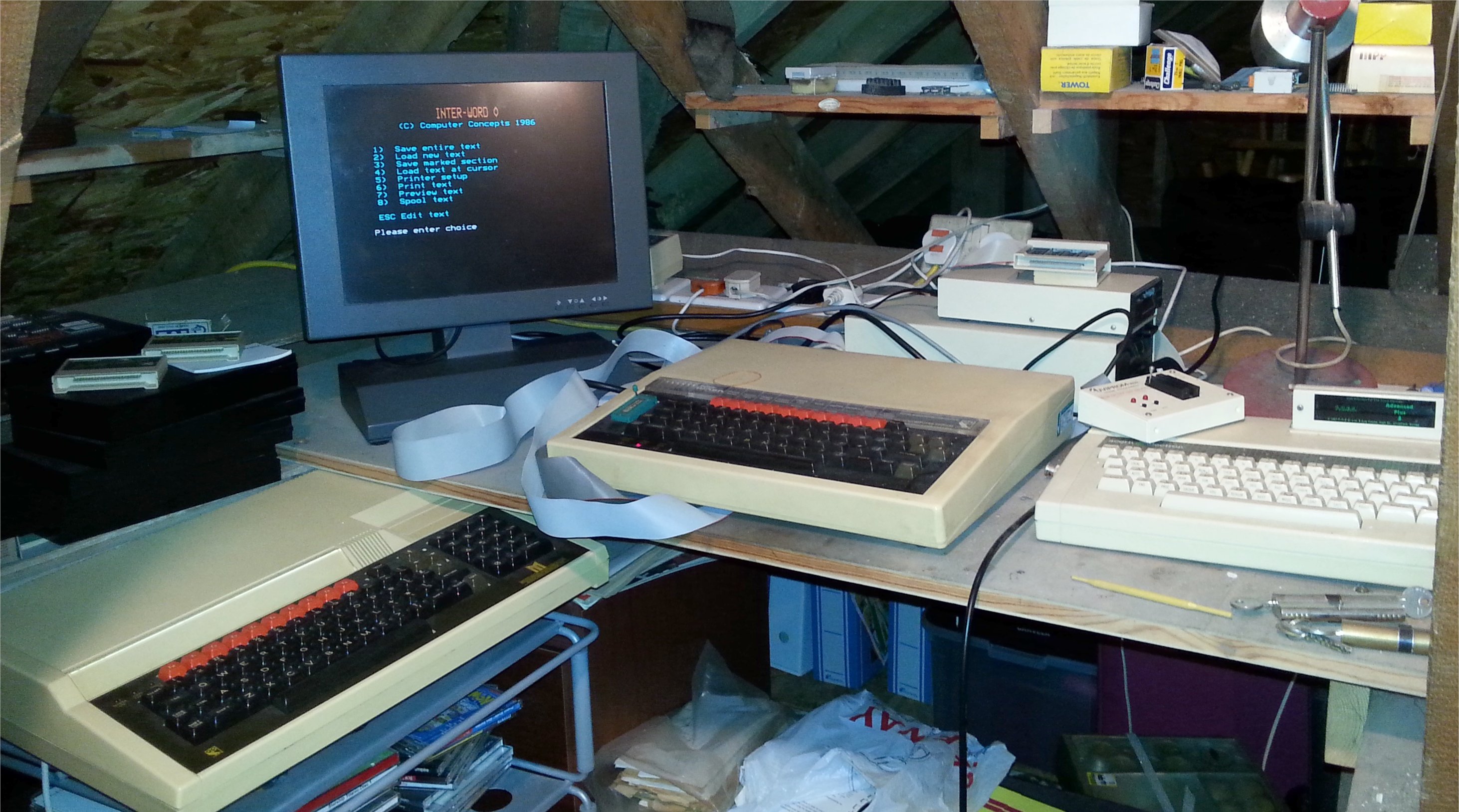 The BBC Master was purchased for several reasons, to assist with my own Hardware projects and to help produce the Electron User Groups bi-monthly
discs. The Master had a 40Mb Hard Disc Drive and a 186 IBM PC 2nd processor with 500Kb of RAM.
The BBC Master was purchased for several reasons, to assist with my own Hardware projects and to help produce the Electron User Groups bi-monthly
discs. The Master had a 40Mb Hard Disc Drive and a 186 IBM PC 2nd processor with 500Kb of RAM.
The purchase of this machine came with a vast amount of spares, Hard Disc controllers, Hard Disc drives and the circuit/PCB Artworks for the 1MHz Bus/SCSI interface which allowed me to add a Hard Drive to my Electron.
At the request from a fellow Electron and Master User I designed a small ROM expansion board for the BBC Master - it basically converted the two internal 32K ROM sockets (4/5 and 6/7) to four
16K sockets to allow better use of the ROM allocation and to fit the Computer Concepts Inter series ROMs, Word, Spell, Base and Chart internal to the Master. Three of the ROMs are on small
carrier boards and each use a 16K slot even although the ROMs are much larger in capacity.
Note: 2019 - I just noticed some errors in the circuit and board layout that has been there for years. I tracked the errors to when I redraw the design from Orcad to Eagle Cad.
I have now replaced the offending sheet with a new drawing of the circuit which I've used to get some boards manufactured. The board is now populated with the Inter series ROMs and
installed in my Master.
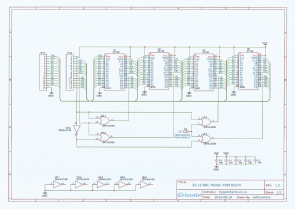
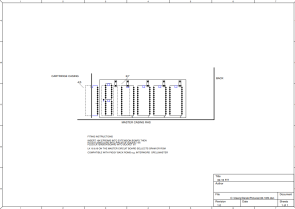
Master ROM Expansion board circuit diagram and fitting instructions.
![]() The Master 32-16 ROm Board
Gerber and Schematic files.
The Master 32-16 ROm Board
Gerber and Schematic files.
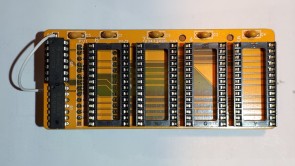
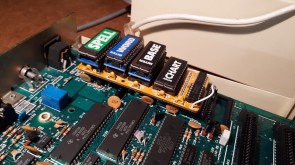
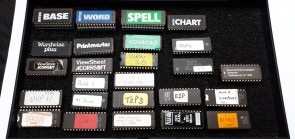
My current Master and its insides:
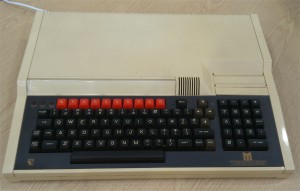 This is my current Master with its one and only tiny modification - a volume control for the speaker is situated just to the right of the UP cursor key. A small screwdriver is required to adjust the volume.
This is my current Master with its one and only tiny modification - a volume control for the speaker is situated just to the right of the UP cursor key. A small screwdriver is required to adjust the volume.
Unfortunately I no longer have the Hard Drive kit or the IBM Co-Processor, they both would have made good additions to my web site.
MicroMart Article:
The 31st March 1994 issue of MicroMart had an article on Classic Computers, spotlighting the BBC and Electron Computers. There are many companies and User Groups mentioned, some are still around
but alas others have disappeared since publication. In the early '90s I assisted with running the Electron User Group (EUG) which gets a mention here..
